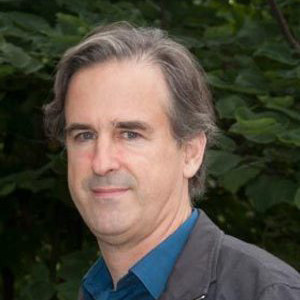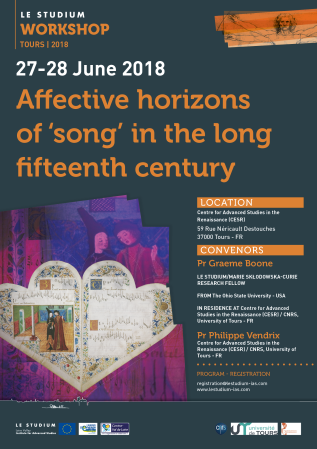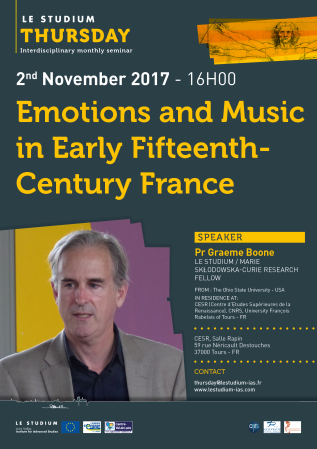Prof. Graeme Boone

From
The Ohio State University - USA
In residence at
Centre for Advanced Studies in the Renaissance (CESR) / CNRS, University of Tours - FR
Host scientist
PROJECT
Emotion in Dufay
Described in his lifetime as ‘the greatest ornament of our age’ (Piero de’ Medici), Guillaume Dufay (c. 1397-1474) is still famous for the sophistication and expressive power of his music, and has been called the first great Renaissance composer; but the emotional dimension of his compositions has never been thoroughly studied, despite the recent explosion of scholarship on emotions in many fields. I propose to study the topic of emotion in relation to the music of Guillaume Dufay, with special attention to his earlier career (c. 1415-1440). Material goals for my fellowship include the hosting of a conference or seminar on fifteenth-century emotion and music at the University of Tours, a volume of essays emerging from this conference, and the writing of a monograph.
The monograph will provide systematic analysis of Dufay's compositions in different genres, set in the background of an elucidation of the diverse affective social spheres surrounding Dufay, as evoked or described in fifteenth-century writings of different kinds, and in light of recent multi-disciplinary research on emotions. It will sift the evidence pertinent to constructing an emotional profile for Dufay as a once-living subject; it will model the ways in which sensorial experience in general, and audition and the musical arts in particular, were understood to function psychologically and physiologically in Dufay's time, in their own right and in relation to emotion (including passion, affect, motus animi, and ethos). It will analyze the literary texts of Dufay’s early compositions in their textual and social contexts; analyze the musical horizons, techniques, and strategies reflected in Dufay's compositions; and draw conclusions regarding the emotional environment and content of his music, with implications for the future of such study.
Publications
Final reports
The relationship between the early musical works of Guillaume Dufay (1397-1474) and their affective context in the world of his time is evaluated. To this end, technical elements of his musical compositions are assessed in light of key philosophical, theological, literary, sociological, historical, and theoretical evidence in the early 15th century, which allow the constitution of an affective environment around him. Amid this evidence, the late writings of theologian Jean Gerson plays a particular role in its emphasis on musical accidentals as a means to project emotional transformation. In related research domains, the relationship between music and architecture of the late Gothic period is analyzed, and a book of essays on medieval music will be published


